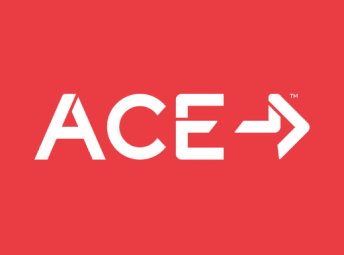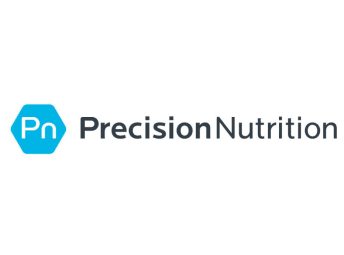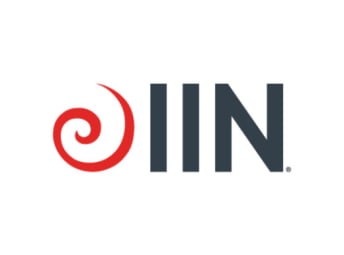If you’re considering joining the field and becoming a health coach, read on to uncover the five courses offering the most complete breadth of information and training that will equip you to start coaching. Three of them are also NBHWC-approved programs, meaning you can take a test to become a certified health coach upon completion. (More on that below.) Whether you’re working on a budget or already have a baseline of knowledge, here’s everything you need to know to choose the right health coaching program for your needs. Why we chose it: mbg has spent over a decade working with the foremost experts in the health space—and when you sign up for HCC, you get direct access to them. Our faculty includes Mark Hyman, M.D., Kelly LeVeque, Maya Feller MS, RD, CDN, and 17 of the other top medical and wellness experts in the world. The breadth of information they share across all facets of health—from sleep to hormone balance—is unparalleled by other programs. Once you sign up, you have unlimited access to their lesson plans, as well as the opportunity to consult with some teachers directly. mbg’s private alumni community also makes this program an unmatched value for anyone looking to make a name for themselves in the health space and start a fulfilling career helping others. Who should try it: Someone looking to go into health coaching (or a related field) armed with a holistic health perspective. Someone looking to learn the skills and practical knowledge needed to pass the NBHWC board exam in 20 weeks, through a mix of synchronous and asynchronous virtual training. Who should skip it: Someone looking for an in-person program, a completely synchronous program, or a program that does not take a holistic approach to health coaching. Review from a recent graduate: “The course really emphasized the nature of being a health coach; I feel prepared to help people advance on their health and wellness journey. The support team was excellent and you never feel alone. The one-on-one faculty feedback experience during Practical Skill Assessments is professionally conducted and invaluable.” — Cari, 2022 HCC graduate Why we chose it: Beyond a solid foundation of health knowledge, we appreciate that this program teaches the ins and outs of building a business—something many of us did not learn in school. Another special perk of this program is its emphasis on relating to clients and helping them commit to habit change. Who should try it: Someone entrepreneurial who is looking to start and build their own health coaching practice after graduation. Who should skip it: Someone who is not interested in private health coaching. Someone who is looking for an in-person program. Why we chose it: If you’re interested in becoming an exercise professional, this program is designed to teach you the ins and outs of how movement promotes health. Beyond that, it also features valuable job training, with 71% of graduates saying becoming ACE Certified helped them make more money according to a survey by Indeed.com. Who should try it: Someone looking to learn the health basics needed to become a personal trainer. Who should skip it: Someone looking for an in-person program, a program that has a community component, or a program that is more focused on general health knowledge. Why we chose it: This introductory online certification is geared towards those interested in going into nutrition coaching and who prefer to learn at their own pace. It also ladders up to more advanced programs like PN Level 2, which is an approved NBHWC program. Who should try it: Someone who is looking to practice nutrition-focused coaching. Who should skip it: Someone looking for an in-person program, a program that has a community component, or an accredited program. Instead of simply looking at the basics of your life to provide generalized diagnoses and advice, health coaches are trained to look into your sleep, diet, lifestyle habits, and more to get to the root cause of issues you may be struggling with—chronic or not. In fact, holistic nutritionist and celebrity health coach Kelly LeVeque once told mbg that health coaches can “support the resolution of [a client’s] symptoms, and potentially the resolution of [their] disease state.” Specializing in topic areas such as diet and nutrition, fitness, and stress, a good health coach should be able to take a 360 approach to wellness, to provide the highest quality of care to their clients. There is a wide range of options to choose from, but it’s a good rule of thumb to look for courses that have been accredited by the National Board for Health & Wellness Coaching (NBHWC). These courses vary in time, monetary investment, and outcome, so setting realistic goals before entering into the program will ensure you’re getting the most out of it. Some require a college degree, and others are better suited for starting your own personal health coaching service. Knowing what you want out of a course before making your decision will ensure you’re not wasting any time. You should also be prepared to take an extensive exam at the end of your course, which will determine your preparedness to enter the field. Once you’re up and running, you can start to earn a good salary as a health coach. RELATED STORY: 40+ Ways To Use A Health Coach Certification RELATED STORY: As A Health Coach, This Is The Salary Range You Can Expect There has been a growing movement within the health coaching industry to ensure that professionals are qualified and that best practices exist. The National Board for Health & Wellness Coaching (NBHWC) was created with the goal of leading the advancement of health and wellness coaching by instituting professional standards. Getting board certification from the NBHWC means that you are a part of a national, centralized standard of training and education. Becoming a certified health coach enhances your credibility and increases your chances of reaching more clients. RELATED STORY: NBHWC Certification: What It Is & How To Get One For Health Coaching Whether you go with mbg’s HCC or another program, the health space needs qualified experts to make improved well-being more accessible.












